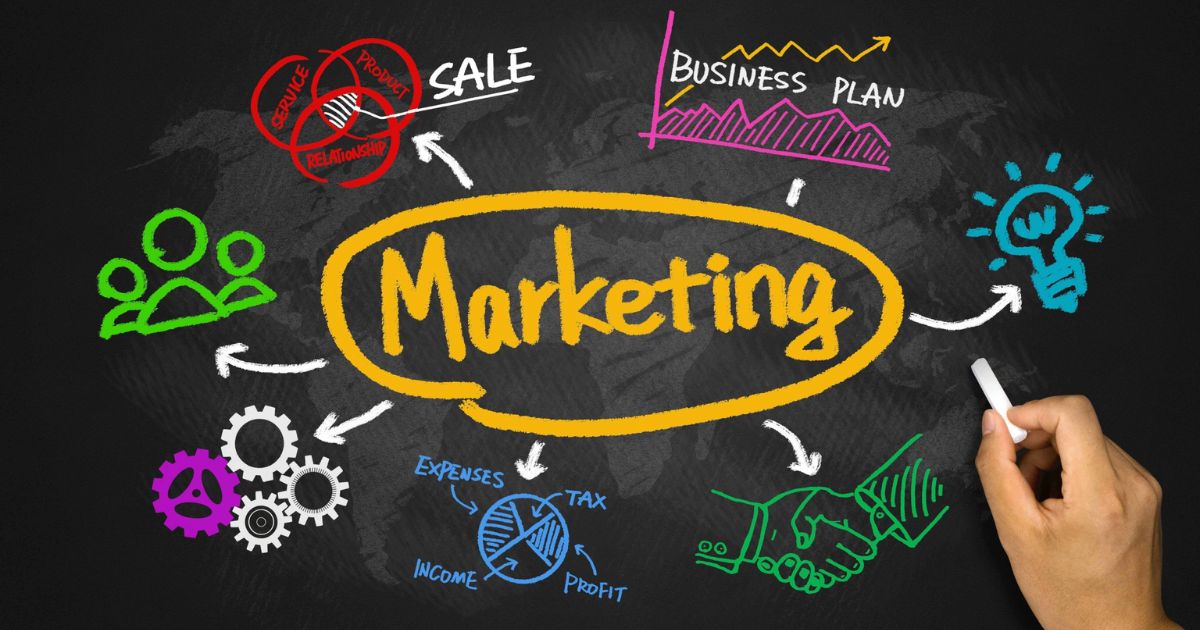Modern marketing has quietly spread into all parts of our lives. This means that ads and marketing tricks are everywhere, often without us noticing. These tactics use data to create personalized experiences, mixing ads with regular content so smoothly that we hardly notice the difference. This way, our choices are influenced without us realizing it.
Imagine waking up and checking your phone. Every app, website, and social media platform already knows what you want. This is how modern marketing works. It’s like a digital shadow, always there but often unnoticed. It shapes our choices and behaviors in ways we might not realize. The big question is: how much control do we have over our decisions in this world full of marketing?
Today’s marketing is very different from old TV ads and billboards. Now, ads use advanced computer programs and big data to reach people accurately. Marketing is everywhere online, from social media influencers to search engine results. This constant exposure affects how we shop, our privacy, and even our mental health.
Understanding the Insidious Proliferation of Modern Marketing
“Insidious proliferation” means that modern advertising has quietly spread everywhere in our lives. Unlike the clear ads on billboards and TV from the past, today’s ads are so smoothly mixed into our daily activities that we barely see them. This sneaky growth of ads is possible because of new technology and data analysis.
Think about how your social media shows you products you might like or how your favorite influencer mentions a brand in a post. These are examples of modern marketing tactics. They are now more advanced and less noticeable. This means consumers often see marketing messages without even realizing it.
What Makes Modern Marketing “Insidious” ?
Modern advertising is tricky because it mixes content with promotion. Online ads use psychological tricks to make emotional connections with people. This makes it hard to tell the difference between real recommendations and paid ads. Because of this, we often feel like we’re always close to buying something.
The Evolution of Marketing Techniques
Digital marketing has changed a lot over time. It started with simple banner ads on websites. Now, it uses complex algorithms to guess what we want before we say it. This change happened because there is more customer information available and better tools to analyze it.
The Role of Data in Modern Marketing

In modern advertising, data is very important. Companies gather lots of information about users to understand their audience better. This data includes basic details like age and gender, as well as more specific things like browsing habits and purchase history. Marketers use this information to create personalized ads that appeal to each person.
Big data is very useful in marketing. It helps companies predict trends, understand what customers want, and make very accurate ads. But using so much personal information raises big concerns about privacy and data security.
Big Data and Its Impact
Big data is very useful in marketing. It helps companies predict trends, understand what customers want, and make very accurate ads. But using so much personal information raises big concerns about privacy and data security.
Privacy Concerns in the Age of Data-Driven Marketing
As internet marketing relies more on data, people are worried about their privacy. Consumers want to know how their personal information is used and are asking for more control. Marketers need to find a balance between offering personalized experiences and respecting privacy.
The Channels of Modern Marketing
Digital advertising now goes beyond just traditional methods. Marketers can use many platforms and techniques to reach their audience. Social media and search engines each provide special ways to connect and convert.
Social Media: The New Frontier of Advertising
Social networking sites are great for marketers. They give access to lots of consumer data and tools to target specific groups. Influencer marketing works well because social media stars have built trust with their followers.
Search Engine Marketing: Controlling the Digital Gateway
Search engines are usually the first place people find brands online. SEO and pay-per-click ads are key parts of digital marketing. By managing search results, companies can strongly affect what people buy and how they act.
The Impact on Consumers

Modern marketing affects how we shop. We see many ads and personalized content, which can subtly influence our choices. This constant bombardment can make us tired of ads and doubtful, but it can also create FOMO (Fear of Missing Out), leading to impulsive buying.
The Psychological Effects of Constant Marketing Exposure
Hearing marketing messages all the time can really impact us. It can change what we think is normal or good, affect how we see ourselves, and even influence our relationships. Knowing how this works is important for both people who buy things and those who sell them.
Consumer Behavior in the Age of Targeted Advertising
Customer behavior has changed with the growth of targeted ads. Some people like the personalized ads, but others are worried about privacy and are taking steps to protect it. As a result, ad-blockers are becoming popular, and there is a push for clearer marketing practices.
Navigating the Modern Marketing Landscape
As consumers, we need to learn how to handle marketing well. This means knowing the tricks marketers use, understanding how they collect and use our data, and making smart choices about our online actions.
Tips for Consumers to Stay Savvy
- Think carefully about marketing messages.
- Use privacy tools to manage your data.
- Be aware of social media and influencers’ impact.
- Take breaks from screens to see fewer ads.
- Support brands with ethical marketing practices.
Ethical Marketing Practices for Businesses
Businesses need to balance good marketing with ethical practices. This means being clear about how they collect and use data, respecting privacy, and offering real value, not just selling products. Ethical marketing helps build trust and loyalty, leading to long-term success.
The Future of Modern Marketing

As technology grows, marketing will change too. New tech like AI, virtual reality, and blockchain will change how brands connect with people. These changes will make experiences more personal and immersive, but they will also bring up new ethical issues that need to be considered.
Emerging Technologies in Marketing
AI and machine learning are being used to make marketing more personal. Virtual and augmented reality let consumers interact with products and brands in new ways. As these technologies improve, they will create new marketing opportunities that mix the digital and real worlds.
Predictions for the Next Decade of Marketing
In the future, we’ll likely see stricter rules on data privacy and marketing. Blockchain technology might help make data management more secure and transparent. As consumers get smarter, marketers will need to offer real value and build true connections instead of using intrusive method
Frequently Asked Questions (FAQ’s)
What does “insidious proliferation” mean here?
It means marketing tricks are spreading secretly and widely in our lives.
How is modern marketing more common now?
It’s everywhere because of digital ads, personalized messages, and data collection.
Why do some people think modern marketing is harmful?
It might be seen as manipulative, invading privacy, and creating false needs.
Conclusion
Modern marketing affects us a lot. Companies use smart tricks to catch our attention and make us want to buy things. We see ads on our phones, computers, and even on the streets. These ads are often customized based on what we like and do online. Marketing is everywhere, making it hard to avoid.
While marketing can inform us about useful products, it can also trick us into wanting things we don’t need. Companies collect a lot of information about us to make their ads more effective, which can feel like an invasion of privacy. It’s important to be aware of how marketing works and think carefully about the ads we see. This way, we can make better choices about what we buy.











